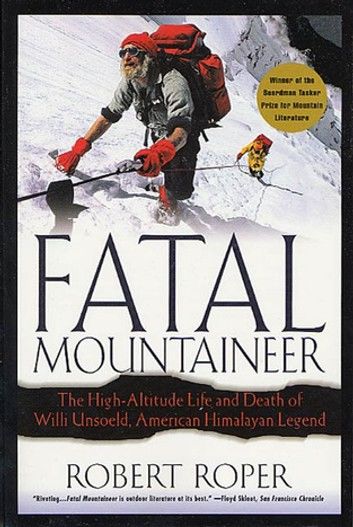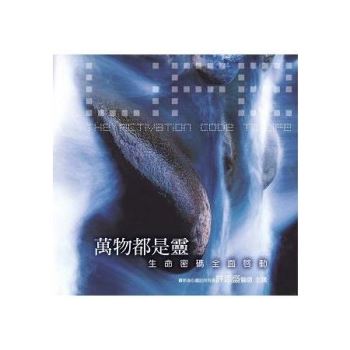| FindBook |
有 1 項符合
Fatal Mountaineer的圖書 |
 |
Fatal Mountaineer 作者:Roper 出版社:St Martins Pr 出版日期:2003-03-20 語言:英文 規格:平裝 / 320頁 / 21.6 x 14 x 2.3 cm / 普通級 |
| 圖書館借閱 |
| 國家圖書館 | 全國圖書書目資訊網 | 國立公共資訊圖書館 | 電子書服務平台 | MetaCat 跨館整合查詢 |
| 臺北市立圖書館 | 新北市立圖書館 | 基隆市公共圖書館 | 桃園市立圖書館 | 新竹縣公共圖書館 |
| 苗栗縣立圖書館 | 臺中市立圖書館 | 彰化縣公共圖書館 | 南投縣文化局 | 雲林縣公共圖書館 |
| 嘉義縣圖書館 | 臺南市立圖書館 | 高雄市立圖書館 | 屏東縣公共圖書館 | 宜蘭縣公共圖書館 |
| 花蓮縣文化局 | 臺東縣文化處 |
|
|
Willi Unsoeld became an international hero during the Kennedy years, when he emerged as probably the greatest American climber of the Himalayan golden age. Displaying the sort of vigor that President Kennedy so admired, Unsoeld became the most visible hero of an ascent of Everest's previously-unclimbed West Ridge -- an ascent that cost him parts of both feet and nearly his life.
His casual fearlessness and physical power established the template for extreme adventure, and his lectures as a charismatic professor inspired the generation of the sixties to test itself in acts of physical daring. Fatal Mountaineer sets Willi Unsoeld's intense life against the story of two defining adventures: the triumph on Everest and a more ill-starred expedition in 1976, when he led a group of mountaineers up a new route on Nanda Devi, the tallest peak in India. One of that gifted group of climbers was Willi's daughter, Devi -- a golden girl named for the mountain she sought to ascend with her beloved father. The intense rivalries within the expedition team, and the dangers of the route, led to an outcome darkened by tragedy, an outcome that continues to fuel one of the most tormenting debates in mountaineering history.
Blending adventure with a frank look at the cultural background, Fatal Mountaineer considers the pressures on mountaineers in a period of our history torn by conflict. It balances hunger for fame with stark tragedy, a man's ambition with a father's love. Unsoeld emerges as an American classic, a self-invented genius of adventure to rank with Mark Twain or Will Rogers for sheer attractiveness. Under the close scrutiny of this thrilling story, his heroism turns out to be deeply authentic-as does his suffering.
|











